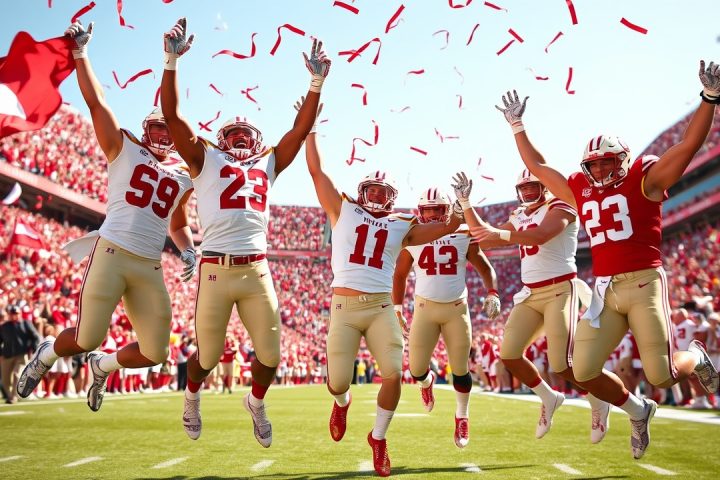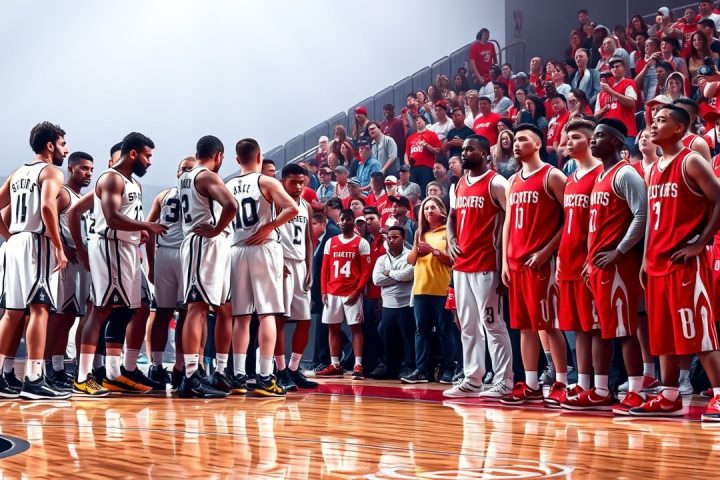WNBA Expansion Overview
The Women’s National Basketball Association (WNBA) is set to grow significantly in the coming years, welcoming three new franchises from major cities known for their basketball heritage: Cleveland, Detroit, and Philadelphia. This expansion, which will see the league increase from its current 12 teams to 18 by 2030, has been met with excitement from officials and fans alike.
Franchise Launch Timeline
Cleveland’s team is expected to hit the court first in 2028, followed by Detroit in 2029, with Philadelphia’s franchise slated to launch in 2030, pending confirmation from the WNBA and NBA Board of Governors. Meanwhile, two franchises from Toronto and Portland are scheduled to join the league in 2024.
Commissioner’s Statement
WNBA Commissioner Cathy Engelbert highlighted the growing interest and demand for women’s basketball, stating, “The demand for women’s basketball has never been higher, and we are thrilled to welcome Cleveland, Detroit, and Philadelphia to the WNBA family. This historic expansion reflects the league’s remarkable growth and the increasing appetite for investment in women’s sports.”
Investment and Ownership
Each new team has been acquired by ownership groups linked to the NBA, with a hefty investment of $250 million in expansion fees made by each group. This amount is substantially higher than what previous teams, such as Golden State, invested. The new franchises are also expected to enhance their investments via the construction of training facilities and other resources to support their operations.
Local Support and Historical Context
Nic Barlage, CEO of Rock Entertainment Group and representative of the Cleveland Cavaliers, believes incorporating established basketball infrastructures into the WNBA is a logical step forward for all involved. In the past, both Detroit and Cleveland supported WNBA teams, while Philadelphia was home to an ABL team.
Detroit Pistons owner Tom Gores expressed his enthusiasm about the return of the WNBA to Detroit, commenting, “Today marks the long-hoped-for return of the WNBA to a city with deep basketball roots and a championship tradition.”
The new team is expected to invigorate the local basketball culture and will draw on the success of Detroit’s historic basketball legacy. Stars from the Detroit sports scene, including Grant Hill and Chris Webber, are expected to hold minority stakes in the new franchise, which will consider names from the previous teams, such as the Rockers and Shock, although they have not yet committed to any particular branding.
Venue and Rivalries
The two new teams in Cleveland and Detroit will utilize existing NBA venues for games, while Philadelphia is working towards constructing a new arena anticipated to be ready by 2031. Josh Harris, co-founder and managing partner of Harris Blitzer Sports & Entertainment, who owns the Philadelphia 76ers, mentioned the optimism surrounding the timeline for the new facility.
Increased proximity of these teams is expected to foster exciting rivalries, similar to those seen in the NBA, as pointed out by Detroit Pistons vice president Arn Tellem.
Future Prospects and Community Impact
Several cities, including St. Louis, Kansas City, Austin, and Nashville, expressed interest in joining the WNBA but were unsuccessful this round. Engelbert acknowledged that initial estimates underestimated the demand for new franchises and emphasized the league’s commitment to balancing team numbers and roster spots.
The WNBA’s past few seasons have seen a rise in critical metrics such as attendance, television ratings, and sponsorship deals. Barlage noted the profound community impact of having a women’s professional sports team, emphasizing the surge in participation in girls’ basketball, particularly in the Cleveland Cavaliers youth academy, which has experienced a 30% increase in female participation annually.
This influx of new franchises stands to not only heighten competition within the league but also create more role models and community ambassadors as women’s professional sports continue to gain momentum and recognition.




